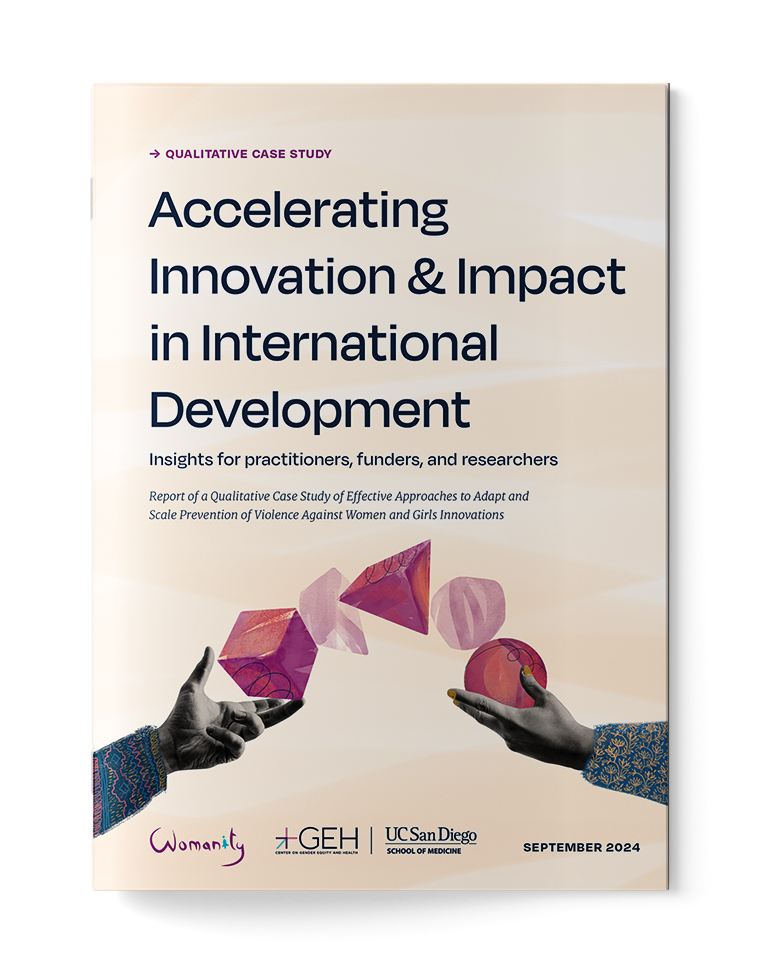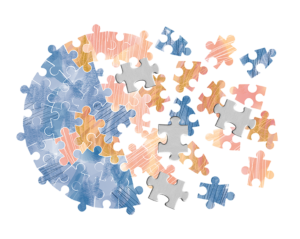
Womanity and the Center on Gender Equity and Health (GEH) at the University of California San Diego (UCSD) conducted a research study that sheds light on technical assistance and partnership models for adapting and scaling violence prevention programmes that better serve women and girls.
What you can expect in this report

Key elements of successful programme adaptation

Innovation processes that resonate with local communities

Approaches to address power imbalances to foster equitable partnerships
Who can benefit
This summary of learnings and recommendations from our research is valuable for anyone working in global development. We offer takeaways and recommendations for:
Development Practitioners
Adaptation Strategies: Practical tips for localising successful programmes.
Circular Learning Environments: Fostering mutual learning and co-creation.
Funding Agencies
Supportive Structures: Best practices for enabling adaptation and scale.
Equitable Funding: Approaches that address Global North-South power imbalances.
Research Institutions
Collaborative Teams: Structuring equitable North-South research partnerships.
Ethical Research: Developing non-extractive relationships with participants.

This report highlights the importance of addressing power imbalances and adopting feminist approaches when building partnerships to advance human rights and development work, such as prevention of violence against women and girls.

